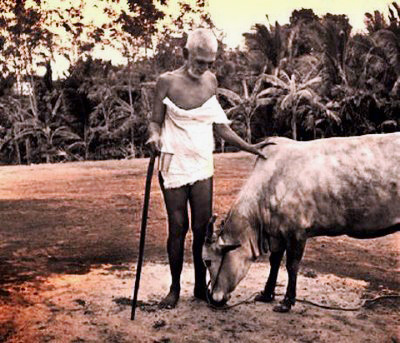I believe that all fields of human knowledge and mental endeavors can be divided into two categories. In one category falls what I'd call Science: The sciences, logic, and reason. I'd call the other category the Arts: Creative and visual arts, music, drama, and religion. Science is good at answering what and how, and religion is better at answering why. Interestingly enough, our brains are wired so that different parts handle different functions. The left hemisphere handles science, logic, and reason, while the right hemisphere is pattern oriented, handling matters of our place in the world. Thus, religion has its place in orienting us to this experience we call life. And by the way, I think modern religion got fucked up because people have injected left-brain thinking into what is rightfully a right-brain endeavor. Scripture is read like a law book, people think in terms of my religion is right, so yours must be wrong, etc.
In terms of our origins, science has answered the what and how quite well: the Big Bang, the evolution of life from its beginnings all the way to human beings, etc., but it doesn't answer the question of why. Like modern humans, the ancients wondered these things, and they constructed stories and myths to why things were the way they were, and where they fit in them. Some of those stories became incorporated into religious texts and the holy scriptures of various religions. And maybe some of those stories and myths don't fit well with modern understandings. Perhaps we need to create our own myths.
Carl Jung talked about archetypes, or themes that appear over and over across different societies and cultures. Essentially these are things that are meaningful to all human beings as individuals, and the human race as a collective. The specific stories and symbols may be different in different cultures, but essentially they all boil down to trying to get at the same things. Thus, traditional stories can be looked at in terms of what universals they were trying to get at. Interestingly enough, in his later years Jung himself had a near-death experience, in which he saw the ball of earth from a great distance in space.
As far as extraterrestrials visiting earth, I personally believe that happens, but I think they try to avoid interfering or calling attention to themselves (the Prime Directive?). I'm not sure about creating a slave race. Rather, if anything like that is going on, I could see it in terms of an ongoing experiment, where extraterrestrials planted the seed of life, and watched as it evolved. Conceivably they may have interfered at certain points. For example, they may have introduced genetic material to cause a rather sudden jump from apes to humans. Of course, this is all conjecture.


































